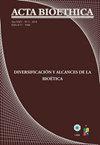IF 0.3
4区 哲学
引用次数: 0
摘要
预先指示(ad)是指如果她(在法律上或根据医学评估)被定性为无法做出可以指导行动的理性决策时,有能力的人事先作出的治疗指示。广告可能是主动或被动安乐死的要求,引起有关其接受的法律和道德问题。在生命伦理学中,尽管支持ADs的决定性权威的观点,没有任何预设,作为自我决定和“关键利益”的表达,仍然占主导地位,但对它们的无条件接受存在强烈的哲学异议。在这个问题上有两种对立的观点:a)支持ADs道德权威的所谓延伸观点。b)道德权威反对观点,质疑ADs的道德接受性,关注个人同一性(PI)的连续性和经验利益的存在。在本文中,我们试图批判基于扩展观点的关于ad道德正当性的主流生物伦理学观点,主要关注“快乐痴呆”患者的案例,这些患者具有强烈的经验利益,可能与“扩展”的关键利益相冲突。因此,我们首先考察生命伦理学话语中更有影响力的PI理论。这些是生物学理论,人类学理论,叙事理论和心理学理论。个人身份的心理和叙事概念都采用经验数据,这些数据受到相对论性评估的影响,可能导致人格概念的限制和例外。他们都要求PI有一个厚实的第一人称身份,然后将其建立为个人身份,据说这是ad权威的基础。尽管它们在生物伦理学中占据主导地位,但就它们支持延伸观点而言,它们面临着一些反对意见。我们试图通过采用康德对个人身份的先验解释来捍卫关于个人身份的道德权威反对意见,该解释提供了一个严格的核心,该核心将人类尊严的概念独立于任何对能力的经验评估。这种人类尊严的概念也包括没有能力表达自己意志的病人,并因无条件接受ad而受到威胁。我们还研究了康德伦理学中ad的可能道德正当性,这诉诸于康德关于自杀的立场。本文章由计算机程序翻译,如有差异,请以英文原文为准。
Προγενέστερες οδηγίες και το θέμα της προσωπικής ταυτότητας
Advance directives (ADs) are directives that a competent person gives in advance, for her treatment in case she is characterized (legally or by medical evaluation) incompetent for rational decision making that can guide action. ADs may be demands for active or passive euthanasia, raising legal and moral issues concerning their acceptance.In bioethics, although the view supporting the decisive authority of ADs, without any presuppositions, as expressions of self determination and of “critical interests”, remains dominant, there are strong philosophical objections to their unconditional acceptance. There are two opposed views on this issue: a) The so called extension view that supports the moral authority of ADs. b) The moral authority objection view that questions the moral acceptance of ADs, focusing on the continuity of personal identity (PI) and on the existence of experiential interests. In this paper we attempt to criticize the dominant bioethical view about the moral justification of ADs based on the extension view, dwelling mainly on cases of “happy demented” patients, who have strong experiential interests that can conflict with the “extended” critical interests.We thus examine first the more influential PI theories in bioethical discourse. These are the biological, the anthropological, the narrative and the psychological theories. Both psychological and narrative conceptions of PI adopt experiential data that are subject to relativistic evaluations and can lead to limitations of, and exceptions from, the concept of personhood. They both demand a thick first person identification of PI, which is then established as personal identity, supposedly grounding the authority of ADs. Despite their dominant position in bioethics, insofar as they lend support to the extension view, they face several objections.We try to defend the moral authority objection regarding ADs, by adopting a Kantian transcendental account of PI, which provides a rigid kernel that grounds a conception of human dignity as independent from any experiential assessment of abilities. This conception of human dignity also includes patients incompetent to express their will, and is endangered by the unconditional acceptance of ADs. We also investigate a possible moral justification of ADs in Kantian ethics which appeals to Kant’s positions on suicide.
求助全文
通过发布文献求助,成功后即可免费获取论文全文。
去求助
来源期刊

Acta Bioethica
医学-卫生政策
CiteScore
0.60
自引率
0.00%
发文量
22
审稿时长
1 months
期刊介绍:
Acta Bioethica is a biannual publication by the Interdisciplinary Center for Studies in Bioethics of the University of Chile (ISSN 0717-5906, press edition, y 1726-569-X, electronic edition), which publishes in three languages: Spanish, English and Portuguese.
Indexed in Science Citation Index (SCI), Scopus, Lilacs, SciELO y Latindex, and in database from several Institutions; it constitutes a pluralistic source of perspectives and an important tribune which accepts the contributions of authors compromised with the interdisciplinary study of ethical determinants and consequences of techno scientific research.
 求助内容:
求助内容: 应助结果提醒方式:
应助结果提醒方式:


